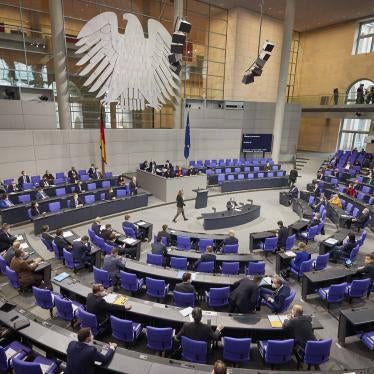Human Rights Watch today expressed concern that the escalation in fighting between India and Pakistan over the disputed territory of Kashmir could lead to widespread civilian casualties. It urged both sides to abide by international humanitarian law particularly with regard to minimizing harm to civilians and ensuring that any prisoners captured are treated humanely.
Both sides have exchanged artillery fire across the cease-fire line — known as the Line of Control — that divides Indian-controlled Kashmir from that controlled by Pakistan. In addition, India has launched air strikes near the town of Kargil in northern Jammu and Kashmir state, close to the Line of Control.
"The Kashmir conflict has produced far to many victims by all parties already," said Patricia Gossman, senior researcher at Human Rights Watch. "Every new abuse will make one of the world's most dangerous conflicts even harder to resolve."
Human Rights Watch urged India and Pakistan to take urgent measures to ensure that civilian areas are not targeted and that their forces do not engage in indiscriminate fire or bombing that could cause unnecessary civilian deaths. As an important precaution, all military operations and installations should be located away from populated areas.
According to some reports, an Indian pilot was taken prisoner in Pakistan after his MIG-27 was shot down. The Geneva Conventions, to which both countries are party, require that people taking no part in the hostilities, including members of the armed forces who are captured or wounded, be treated humanely. Prisoners of war should be afforded the full extent of protection guaranteed under international law. Both Indian and Pakistani forces, and paramilitaries acting under their commands, have in the past been responsible for torture and summary execution. Such violations should be avoided at all cost.





